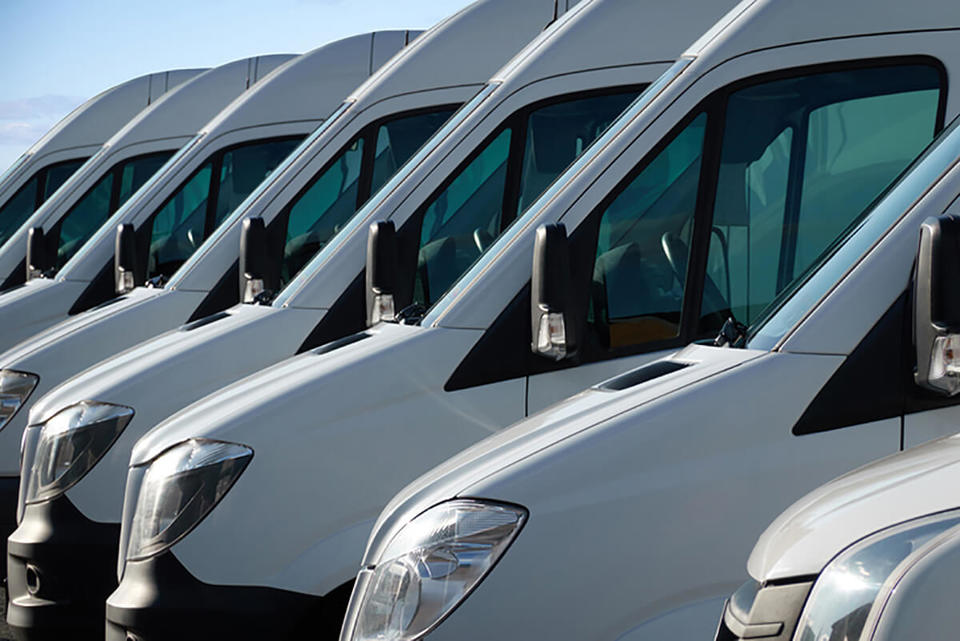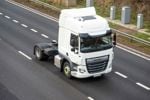Fleet decision-makers are calling for clarity around what powertrains for new light commercial vehicles (LCVs) will be allowed beyond 2030.
Fleet News revealed in July that the Government would be restoring the 2030 phase-out date for the sale of new petrol and diesel cars. However, no mention was made of vans.
Then, last month (September), the Government suggested that the sale of new hybrid electric vehicles (HEVs) could be allowed until 2035, with the Department for Transport (DfT) to consult on what the qualifying criteria will be for cars and vans.
The Association of Fleet Professionals (AFP) has said that reinstating the 2030 phase-out date for the sale of new internal combustion engine (ICE) vans is not “practicable”.
Debating the end date for the sale of new petrol and diesel LCVs, Chris Connors, head of fleet and travel at ISS, told September’s Fleet News at 10 webinar: “We need the leasing providers, we need the manufacturers, we need the fleet users, we need everybody around the same table to map out how we go from now, because we all want to do the right thing for the environment.
“We all want to move to the least emitting vehicles that we can do. It’s just help on how we get there that we need.”
Simon Ungless, commercial group fleet manager at the AA, told Fleet News at 10 that it would be helpful if hybrid vans are allowed beyond 2030.
Fleet decision-makers are calling for clarity around what powertrains for new light commercial vehicles (LCVs) will be allowed beyond 2030.
Fleet News revealed in July that the Government would be restoring the 2030 phase-out date for the sale of new petrol and diesel cars. However, no mention was made of vans.
Then, last month (September), the Government suggested that the sale of new hybrid electric vehicles (HEVs) could be allowed until 2035, with the Department for Transport (DfT) to consult on what the qualifying criteria will be for cars and vans.
The Association of Fleet Professionals (AFP) has said that reinstating the 2030 phase-out date for the sale of new internal combustion engine (ICE) vans is not “practicable”.
Debating the end date for the sale of new petrol and diesel LCVs, Chris Connors, head of fleet and travel at ISS, told September’s Fleet News at 10 webinar: “We need the leasing providers, we need the manufacturers, we need the fleet users, we need everybody around the same table to map out how we go from now, because we all want to do the right thing for the environment.
“We all want to move to the least emitting vehicles that we can do. It’s just help on how we get there that we need.”
Simon Ungless, commercial group fleet manager at the AA, told Fleet News at 10 that it would be helpful if hybrid vans are allowed beyond 2030.
“I think that would be good news for us because it is a stepping stone to get into full electric at some stage,” he said. “It’s the best alternative for us to replace diesel (vans) at the moment.”
The Government has said that all of the cars and vans it operates will be zero emission by 2027, with exemptions for available for certain vehicles on a case-by-case basis.
Appearing alongside Connors and Ungless, Dale Eynon, director of Defra Group Fleet Services, said that the Government target was challenging, but it was the right thing to do.
He told Fleet News at 10: “We’re buying a lot of (electric) vans next year in the hope that ranges are improving, and certainly the new Renault Trafic, with 295 miles (range) starts to see that improvement. Four-by-fours is our biggest challenge.”
Across government, Eynon estimates that there are 10s of thousands of 4x4s being used. “It is a massive challenge for us... most of those 4x4s have to tow, and they have to tow up to three-and-a-half tonnes in some cases,” he said.
“Generally speaking, if you’re going to tow it halves the range.”
Enyon has been in discussions with manufacturers, such as Isuzu and Toyota, and looking at alternatives including hydrogen, as well as battery electric vehicles (BEVs) due to be launched in the future.
He added: “It’s all a little bit jam tomorrow, and I think no one’s really announcing range, prices, towing capability, so we’re pushing our programme back to effectively 2026 to 2027, in the hope that next year there'll be more product coming.”
Watch the full debate around the 2030 deadline on Fleet News at 10 below
Login to continue reading.
This article is premium content. To view, please register for free or sign in to read it.





















Login to comment
Comments
No comments have been made yet.